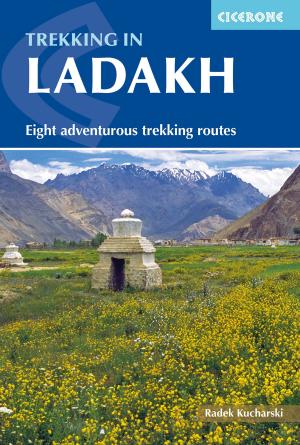| Author: | Tammy Winand | ISBN: | 9781301419036 |
| Publisher: | Tammy Winand | Publication: | November 20, 2012 |
| Imprint: | Smashwords Edition | Language: | English |
| Author: | Tammy Winand |
| ISBN: | 9781301419036 |
| Publisher: | Tammy Winand |
| Publication: | November 20, 2012 |
| Imprint: | Smashwords Edition |
| Language: | English |
Imagine being sent on a long hike in winter, as a child, not knowing if you will ever go home. Being separated from your family in a land where you barely speak the language, able to communicate with home only by phone, and only in code because your calls are being monitored. Imagine going to prison and being tortured for expressing your wish for religious freedom and equality.
These are just a few of the issues facing Tibetans leaving occupied Tibet. Most of them end up, at least temporarily, in a small village in the Himalayan foothills of north India called Dharamsala, where their exiled spiritual leader has lived since 1960.
McleodGanj, Upper Dharamsala, is a hill station in north India which has been the seat of the Tibetan government in exile since 1960, and the residence of His Holiness the 14th Dalai Lama, spiritual leader of Tibet. An estimated 60,000 Tibetan exiles have settled in the region since the middle of the last century.
Writer and photographer Tammy Winand spent 16 months between November living in the Himalayan regions of north India and Nepal, volunteering with non-profits dedicated to improving life for the Tibetan exile communities there. Her first manuscript from this experience, Everyday Exile, provides an intimate glimpse into a unique culture few westerners ever have the opportunity to experience.
During her first visit, Tammy's students, including several former political prisoners, monks and nuns, shared stories of survival and hopes for the future which moved her deeply. On her return to the United States, speaking to others about her experiences in the Tibetan community, the lack of general knowledge about these issues inspired her to create a project to make Tibetan voices heard.
Everyday Exile aims to present a first-hand narrative that anyone from school child to adult can learn and benefit from. It is not intended to be scholarly nor comprehensive. The book is aimed at those with little or no knowledge of Tibetan culture or history.
It is the book the author wishes someone had written and handed to her when she first arrived in the Tibetan community.
Imagine being sent on a long hike in winter, as a child, not knowing if you will ever go home. Being separated from your family in a land where you barely speak the language, able to communicate with home only by phone, and only in code because your calls are being monitored. Imagine going to prison and being tortured for expressing your wish for religious freedom and equality.
These are just a few of the issues facing Tibetans leaving occupied Tibet. Most of them end up, at least temporarily, in a small village in the Himalayan foothills of north India called Dharamsala, where their exiled spiritual leader has lived since 1960.
McleodGanj, Upper Dharamsala, is a hill station in north India which has been the seat of the Tibetan government in exile since 1960, and the residence of His Holiness the 14th Dalai Lama, spiritual leader of Tibet. An estimated 60,000 Tibetan exiles have settled in the region since the middle of the last century.
Writer and photographer Tammy Winand spent 16 months between November living in the Himalayan regions of north India and Nepal, volunteering with non-profits dedicated to improving life for the Tibetan exile communities there. Her first manuscript from this experience, Everyday Exile, provides an intimate glimpse into a unique culture few westerners ever have the opportunity to experience.
During her first visit, Tammy's students, including several former political prisoners, monks and nuns, shared stories of survival and hopes for the future which moved her deeply. On her return to the United States, speaking to others about her experiences in the Tibetan community, the lack of general knowledge about these issues inspired her to create a project to make Tibetan voices heard.
Everyday Exile aims to present a first-hand narrative that anyone from school child to adult can learn and benefit from. It is not intended to be scholarly nor comprehensive. The book is aimed at those with little or no knowledge of Tibetan culture or history.
It is the book the author wishes someone had written and handed to her when she first arrived in the Tibetan community.















